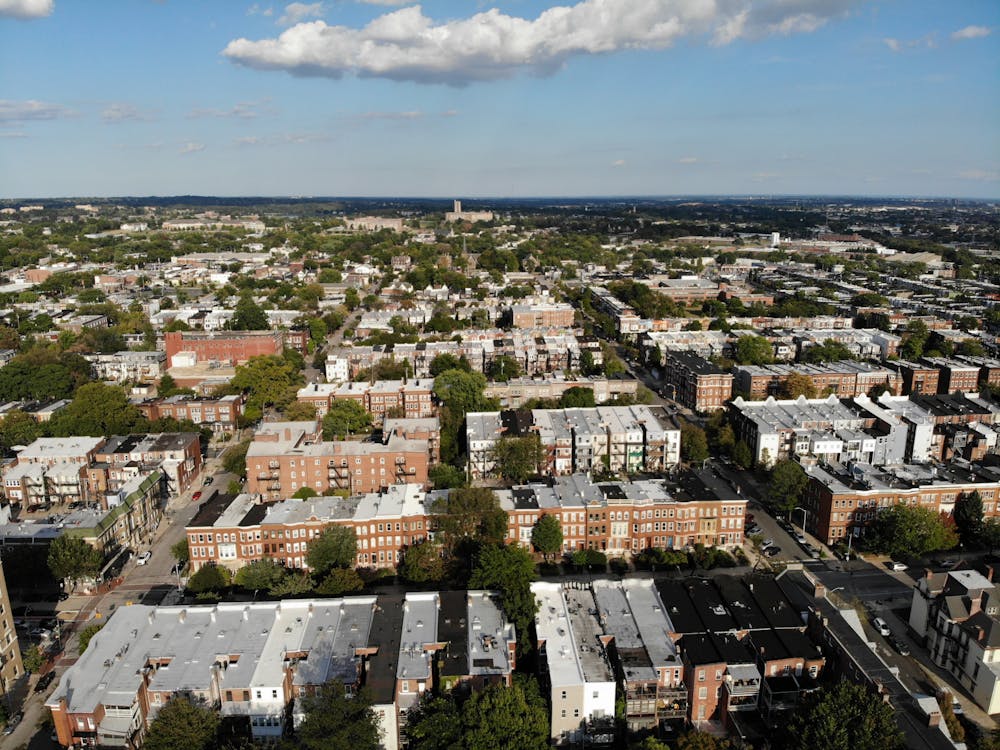The University announced the creation of the Innovation Fund for Community Safety on Sept. 30. This four-year, six-million-dollar fund will support community-based public safety programs and alternatives to policing in Baltimore.
Vice President for Economic Development Alicia Wilson, one of the University leaders overseeing this fund, stated in an interview with The News-Letter that the fund will be open to any program, whether new or established, wishing to throw its hat into the ring.
“The main goals of this fund are really to let community organizations, students and faculty have the ability to innovate around how to address community safety and community wellness,” she said. “Many times organizations and groups know how to solve the problems that are present in their community, but they usually are not given the space... and resources to do so.”
Wilson stressed that the University wants to support initiatives that are community-led, regardless of whether they aim to reduce violence, help the environment, create job programs, provide mental health services or something entirely different.
Junior and Baltimore native Sera Bailey-Emberson told The News-Letter that she was cautiously optimistic about the fund, which she believed had the potential to support beneficial alternatives to the Baltimore Police Department.
However, she warned that the fund will only be successful if the University listens to the community.
“That’s the people who are living there. That’s the people who will be impacted,” she said. “The University shouldn’t assume certain things... It might come across as Hopkins creating even more of a bubble.”
Sophomore and Black Student Union Community Service Chair Jayla Scott voiced her high hopes for the fund.
“I’m glad that Hopkins is putting its money where its mouth is,“ she said. “When it comes to community safety, the issue is lack of money and lack of resources, and this fund really will solve some of those problems... It definitely is a good start.”
However, Scott also criticized the University for going forward with this fund without cancelling its plans for a private police force, which were delayed in June.
“It’s not a commitment to no police, and that’s where it fails,” she said. “That’s problematic because they’re asking the community to come up with initiatives to make it safer, while also still thinking about having a police force that’s going to harm the community. I don’t feel like they can have this fund and commit to this mission without also saying, ‘I’m not going to do police.’”
Scott also was disappointed that the fund did not seem to focus on legislative reform, which is where she sees an opportunity for improvement.
In an email to The News-Letter, The Coalition Against Policing by Hopkins (CAPH) echoed Scott’s concerns, arguing that supporting alternatives to policing did not cancel out the University’s other plans.
“It doesn't address concerns around the JHU police force,” the group wrote. “The Fund for Community Safety is clearly a PR move. Johns Hopkins is exercising damage control, when it should have been exercising self-control.”
CAPH questioned the University’s dedication to the fund.
“The $6 million set aside for the current plan represents about 0.092% of the university’s total annual operating budget, which ultimately reflects a lack of a serious commitment to using its wealth to benefit local residents,“ it wrote.
In an email to University affiliates, University President Ronald J. Daniels and Bloomberg School of Public Health Dean Ellen MacKenzie explained that the fund is part of a larger attempt by the University to reimagine public safety and reduce violence.
“When the University announced a two-year pause on the implementation of the Johns Hopkins Police Department, we committed to identifying and supporting community-led approaches to improving public safety while at the same time reducing the reliance on sworn policing,” they wrote. “We hope to help advance the community’s own ideas for improving public safety — ideas that are rooted in community partnerships and will be implemented by community residents — with Johns Hopkins as an active partner.”
The fund will be overseen by MacKenzie and Wilson, as well as Bloomberg School of Public Health Vice Dean for Public Health Practice and Community Engagement Josh Sharfstein. A committee of members from the Baltimore and Hopkins communities with a demonstrated interest in public safety will help select which programs to fund.
The fund will host listening sessions on Oct. 12, 15, 19 and 26 to gather ideas and answer questions. Grant recipients are expected to be announced in January 2021.
Wilson encouraged applicants to come forward with unusual or unpolished ideas.
“We don’t want them to morph into something else because they think that’s what we want... We want them to have the freedom to explore and come up with different ideas,” she said. “There’s going to be some stuff I’ve never even thought of.”
Sharfstein explained in an email to The News-Letter that he believes this fund may be able to strengthen the University’s relationship with Baltimore.
“My hope is that the fund can support productive collaborations between community organizations and Hopkins students, staff and faculty. If so, the fund can help bring Hopkins and the city closer together,” he wrote.
According to Wilson, the fund is a clear example of the University’s values.
“A fund like this is necessary because we are an institution of higher learning. We value new ideas, we value innovation and we know that great ideas come from all segments of our society,” she said. “If we have an ardent belief that we as an institution are not just in the community but of the community... then I think this fund is demonstrative of those values.”





